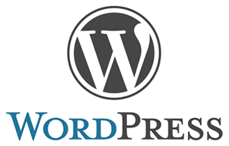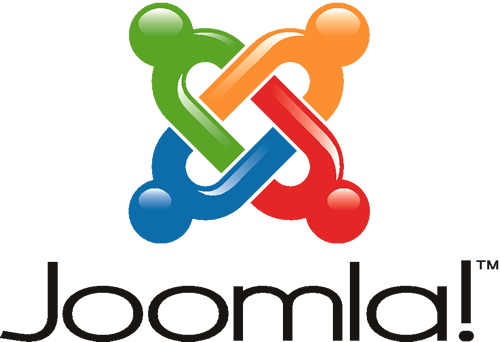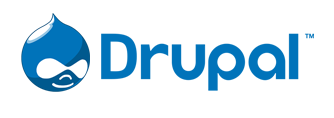A content management system ( CMS ) is a set of programming files implemented on a website to allow permissions-based, tiered access for management of the content of the website by multiple users via a WYSIWYG editing system. Open source content management systems abound in website development and have many advantages over proprietary content management systems (i.e. you have a choice of developers, the code is transportable to another developer, no copyright issues, etc.).
- Quick development gets your website project online faster and costs less.
- Many features and functionalities are already built into the content management system. No need to write or re-write code.
- A Proprietary CMS is owned by it's author and can not be transferred to you should you try to move to another website development company.
- Custom coded websites can be very complicated and only understood by the original author.
- Open source content management systems can be customized should existing modules not fit your needs.
You may have heard of such terms at Drupal, Wordpress, Joomla, Xoops and many other content management systems. Each has its strengths and weaknesses and depending on your project goals one is right for you. Here is a good article comparing Drupal vs Joomla vs WordPress. eMUNICATIONS has experience in many content managment systems and can help you choose the one that is right for your project. eMUNICATIONS can program several content management systems including Drupal, Joomla, WordPress, Xoops and some lesser-known content management systems. We can also custom code a website in PHP and MySQL should an open source CMS not work for you.
Drupal is where it's at
Drupal is eMUNICATIONS' preferred development framework for website development. If you know Drupal, enough said, if you don't, check out Drupal. eMUNICATIONS prefers to provide the Drupal CMS and can take this very robust, complex system and tame it with an easy to use dashboard interface for those who are not interested in learning a development framework. You can get an idea how easy Drupal is to use by visiting our Drupal demonstration website. Read the directions on the front page before logging in. Here are 10 good reasons to consider Drupal for your next project.
Strengths: Highly flexible, customizable and extensible, large community of developers to provide support and enhancements, the most features included in the core application, excellent SEO capabilities
Weaknesses: Complicated to program (we make it easy to administer though through our dashboards), backward compatibility
Wordpress Is To Blog For
 Wordpress is a very easy to program and administer open source content management system. Wordpress is the easiest to configure and program of the popular content management systems but, unless you are going to do the programming yourself, that should not be a consideration for you. Wordpress got its start as a blogging tool but, with the introduction of Wordpress specific modules, widgets and plugins it can now be configured to perform more functions and has more features than just blogging tools. Additionally, there are extensive libraries of designed templates available should you not require a custom, unique design for your website. One of Wordpress's strong points was its easy to administer content management system. eMUNICATIONS' dashboard systems for Drupal has neutralized this advantage but, Wordpress is still an effective content management system for developing websites.
Wordpress is a very easy to program and administer open source content management system. Wordpress is the easiest to configure and program of the popular content management systems but, unless you are going to do the programming yourself, that should not be a consideration for you. Wordpress got its start as a blogging tool but, with the introduction of Wordpress specific modules, widgets and plugins it can now be configured to perform more functions and has more features than just blogging tools. Additionally, there are extensive libraries of designed templates available should you not require a custom, unique design for your website. One of Wordpress's strong points was its easy to administer content management system. eMUNICATIONS' dashboard systems for Drupal has neutralized this advantage but, Wordpress is still an effective content management system for developing websites.
Strengths: Ease of use in programming and development, backward compatibility, number of plugins and themes available, strong developer following and ease of customization.
Weaknesses: Inflexible (easy to outgrow), security issues
Joomla! Has Been Around A Long Time
 Joomla grew out of a previous contenet management system called Mambo – one of the first open source content management systems used on the Internet. Joomla has been improved over the years and has a refined user interface to assist in configuring and prgramming the many features available on this CMS. The community that supports the Joomla application is large, robust and very supportive. There are many, many templates available for Joomla should you not need a customized look, feel and functionality. Joomla is not quite as extensible as Drupal but, much more extensible than Wordpress. With this middle of the road approach Joomal is a bit easier to program with than Drupal but, not as easy as Wordpress.
Joomla grew out of a previous contenet management system called Mambo – one of the first open source content management systems used on the Internet. Joomla has been improved over the years and has a refined user interface to assist in configuring and prgramming the many features available on this CMS. The community that supports the Joomla application is large, robust and very supportive. There are many, many templates available for Joomla should you not need a customized look, feel and functionality. Joomla is not quite as extensible as Drupal but, much more extensible than Wordpress. With this middle of the road approach Joomal is a bit easier to program with than Drupal but, not as easy as Wordpress.
Strengths: Large community of developers to provide support and enhancements, flexibility
Weaknesses: Code bloat, administration is not intuitive, security
Total Customization through PHP/MySQL
The above content management systems are written in PHP and utilize the open source database engine MySQL. Because of that we can create custom modules that "plugin" to the CMS to create new functionality or alters existing functionality. Additionally, we can start from scratch and not use a CMS and create a totally custom solution using PHP/MySQL, HTML, JQuery, Ajax, etc. This is an alternative to the content management systems above when a lot of customization is needed or it is determined the additonal functionality offered in the CMS is not now or never will be needed. For example, eMUNICATIONS built an application for an environmental monitoring company that was a very complicated document and media repository. Security was important yet, we needed to provide access for the company's clients. This was a custom application programmed utilizing PHP and MySQL. Another example, is the many online catalog interfaces eMUNICATIONS created for the vendors of the Valero Energy Company.Valero wanted a way for their vendors to present their catalog of products (some catalogs included 10s of thousands of products) to Valero's buyers nationally over the internet but, rather than purchase the products in the customary ecommerce way, the system sends the purchased products to Valero's SAP system where they are checked against contract for availabiltiy and pricing. These applications are custom programmed in PHP and MySQL and did not use a content management system.


